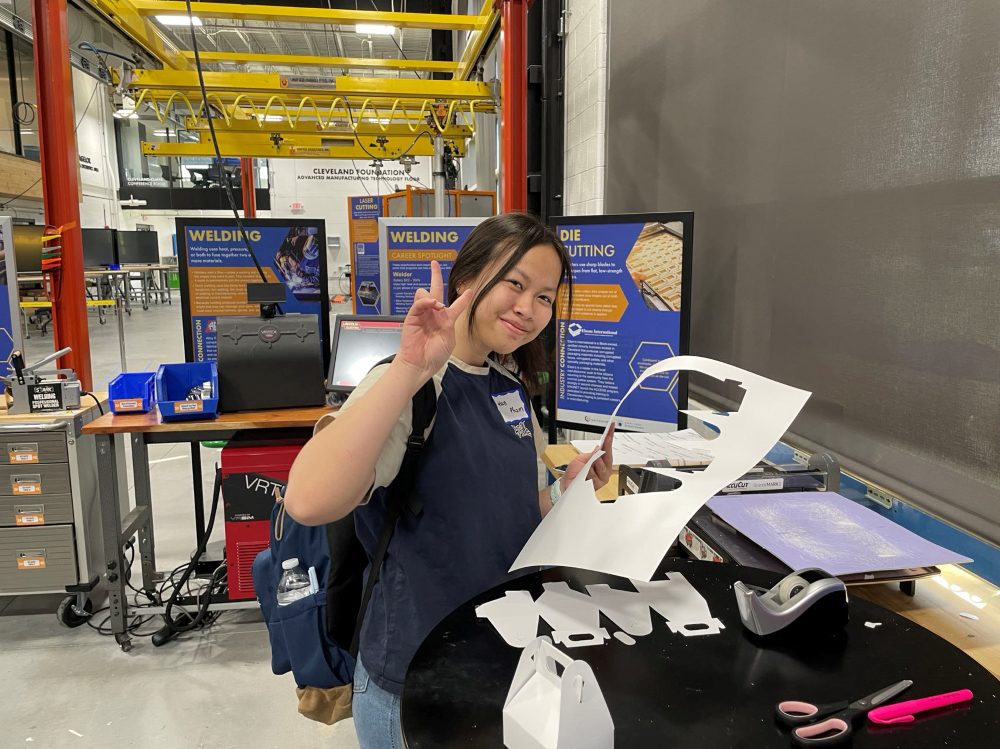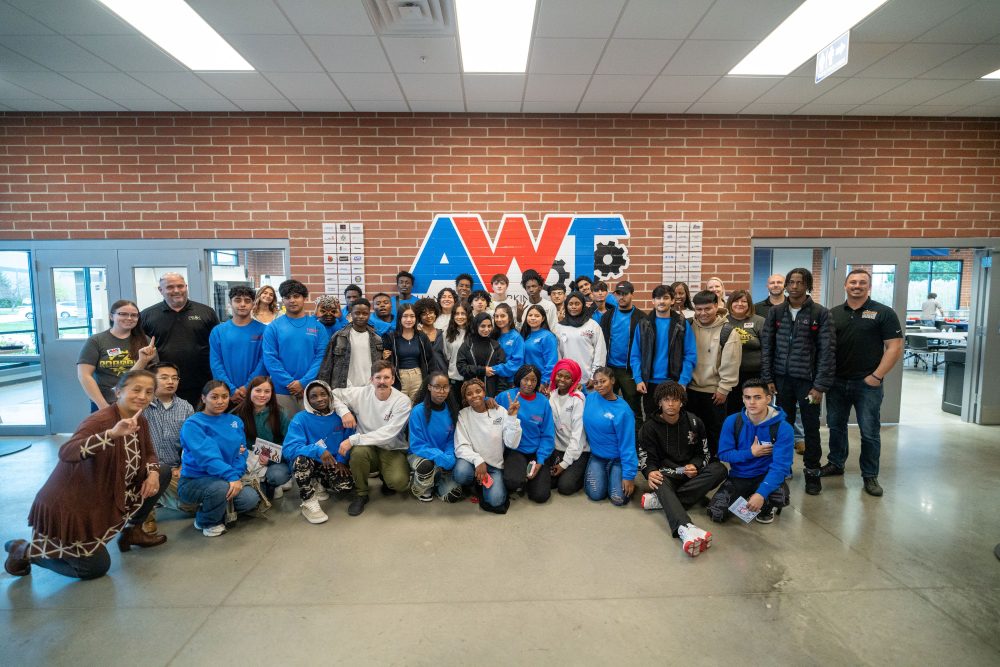
Why Students Should Consider Skilled Trades Over Traditional College Paths
If you are or know an international student who is considering skilled trade opportunities over traditional college paths, reach out to us at the International Student Services Association (ISSA) today to learn more about the options!
As the job market continues to evolve, many students find themselves at a crossroads when deciding between pursuing traditional college degrees or opting for skilled trades.
With rising tuition costs and growing student loan debt, exploring trade skills has become an attractive alternative. This article will explain what skilled trades are, present relevant data and trends, and outline the benefits of pursuing a career in skilled trades over traditional college paths.
What Are Skilled Trades?
Skilled trades refer to occupations that require specific hands-on training and expertise, often acquired through vocational schools, apprenticeships, or on-the-job training rather than a four-year college degree. These careers involve trades such as plumbing, electrical work, carpentry, welding, HVAC maintenance, and more. In some cases, skilled trades may require certifications or licensure, but they typically avoid the years of academic study required for traditional college paths. The job skills learned from these opportunities are invaluable and immediately useful in obtaining work.
The demand for skilled trade jobs is rising, driven by aging infrastructure, a retiring workforce, and an increasing need for specialized technical expertise. According to the U.S. Bureau of Labor Statistics (BLS), the job outlook for skilled trades remains strong. For example:
- The BLS reports that employment of electricians is projected to grow by 11% from 2023 to 2033, adding over 84,000 jobs.
- Similarly, plumbers, pipefitters, and steamfitters are expected to see a 6% growth in job opportunities during the same period.
- Trade skills like HVAC repair are also expected to experience a 9% growth rate, further highlighting the need for specialized technical labor.
Some other reasons why electricians and other skilled trade jobs are in such high demand are that more workers retire or leave the workforce than enter it each year, the construction industry is booming, the country is shifting to a greener economy, and society is becoming more reliant on technology, all of which require electricians and other skilled workers. The individuals who leave these industries often cite the physical demands of the job, inconsistent work hours, having to be on-call, and a feeling that there are no continuing education opportunities.
However, with the current technological and renewable energy revolution, there are many new sectors for skilled trade workers to explore.
Additionally, many skilled trade jobs in demand offer competitive salaries without the burden of student loan debt. According to Zip Recruiter, many skilled trades have salaries starting between $40,000 and $60,000 annually, with the average skilled trade employee making $23 an hour. However, some of the best-paying skilled trades offer incomes exceeding $70,000 per year. Many of these salaries are also dependent on where you live and the cost of living in that particular area. To get a better idea of what you might make in your area, you can explore the average salary for a skilled trade worker by state.
The Importance of Job Skills for ESL and Immigrant Students
For ESL (English as a Second Language) and immigrant students, acquiring job skills is essential for building a stable future. These skills help overcome barriers like language challenges and limited educational access, providing a pathway to financial independence and career success. Here are some of the main reasons these skills are so important:
1. Overcoming Barriers Through Skilled Trades
Skilled trade careers prioritize hands-on expertise over advanced language skills or degrees, making them accessible for ESL students. Fields like plumbing, electrical work, and HVAC repair offer competitive salaries and clear advancement opportunities, creating a foundation for economic stability.
2. Reducing Vulnerability and Empowering Futures
Without strong trade skills, immigrant students risk underemployment or low-wage jobs with limited growth. Learning in-demand trade skills empowers them to achieve professional success and integrate into society effectively.
3. Tailored Support for Lasting Impact
Programs designed for ESL students, including bilingual instruction and mentorship, ensure they can succeed in skilled trades while addressing their unique challenges. These efforts enable them to contribute meaningfully to their communities and secure better futures.
Benefits of Skilled Trades Over Traditional College Paths
1. Lower Education Costs
One of the primary advantages of pursuing a career in the skilled trades is the significantly lower education costs. While a traditional four-year degree can cost over $100,000, skilled trade training programs typically cost a fraction of that. Many students in trade skills training programs also benefit from paid apprenticeships, earning money while they learn.
2. Shorter Training Time
Whereas traditional college degrees often require four years of study, many skilled trade programs can be completed within two years or less. Some trade skills training programs offer accelerated tracks, allowing students to enter the workforce quickly and start building their careers earlier than their peers in college.
There are also short-term training programs that are particularly beneficial when you consider that many students or young adults struggle to choose their major or career focus, often leading to wasted time and resources. Short-term training programs allow these individuals to explore their interests and enhance their skills, while also opening pathways to work with companies that are willing to support their continued education if they wish to pursue it further.
3. High Job Demand
In-demand skilled trades continue to offer job security. As the current workforce ages and retires, there is a growing gap in the availability of trained professionals to fill these roles. Careers like plumbing, electrical work, and HVAC maintenance are considered recession-proof, as they provide essential services that remain necessary in all economic conditions.
4. Earn While You Learn
Many skilled trades offer apprenticeship programs where students can earn wages while gaining hands-on experience. This combination of work and study helps students build practical skills without accumulating debt. It also provides them with real-world experience that can translate directly into employment opportunities after completion.
5. Career Satisfaction and Stability
Many workers in skilled trades report high levels of job satisfaction due to the nature of their work, which is often hands-on, practical, and results-oriented. In fact, Forbes reports that over 90% of skilled trade workers were satisfied with their careers. In addition, skilled trade jobs often provide a level of career stability that many college-educated professionals struggle to find in today’s competitive job market.
6. Entrepreneurial Opportunities
Many professionals in the skilled trades become their own bosses by starting their own businesses. Whether it’s an electrician launching an independent contracting company or a carpenter offering custom furniture services, the entrepreneurial opportunities in the skilled trades can provide both personal and financial rewards.
Best Ways to Get Involved in Skilled Trades
1. Vocational Schools and Trade Colleges
Vocational schools and trade colleges provide structured programs where students can learn the technical and practical skills needed for skilled trade careers. Many programs offer hands-on experience and are designed to align with industry certifications and licensure requirements.
2. Apprenticeship Programs
Apprenticeship programs are a popular path into the skilled trades. These programs allow students to receive skilled trade training on the job while being paid. Apprenticeships often combine classroom instruction with hands-on learning, giving participants a well-rounded educational experience. Many trade unions offer apprenticeships for roles like electricians, plumbers, and welders.
3. Certifications and Licensure
While some skilled trades require certification or licensure, obtaining these credentials can open the door to higher-paying jobs and specialized career opportunities. Many vocational programs are designed to help students achieve the necessary certifications for their field, allowing them to quickly enter the workforce with the skills and qualifications they need.
Why Skilled Trades Should Be Considered Over Traditional College
The decision to pursue a career in skilled trades offers numerous benefits, including lower education costs, shorter training times, high job demand, and the potential for career satisfaction and stability. Additionally, many skilled trades provide opportunities for entrepreneurship, allowing professionals to work independently and build their businesses. In contrast, traditional college paths often come with higher costs, more significant time commitments, and less immediate job security.
The demand for skilled workers continues to rise, and the job opportunities in these industries are plentiful. By choosing a skilled trade career, students can achieve financial stability and job satisfaction without the burden of student loan debt. With hands-on training, real-world experience, and the ability to enter the workforce quickly, skilled trades present a practical and rewarding alternative to the traditional college path.
By following this pathway, students not only position themselves for success but also help fill the growing demand for essential services in the U.S. economy. For more information on career opportunities and programs related to the skilled trades, visit ISSA’s website where we help to guide students toward meaningful career paths that align with their skills and aspirations.
The International Student Services Association is dedicated to creating a better future for students who are immigrants to the United States by providing information, inspiration, and motivation for them to navigate their education and develop their future careers beyond high school. We want to see immigrant students perform their very best in U.S. schools and avoid any potential struggles by giving them the resources they need to thrive. Find out more about how we help immigrant students and how we can help you get started today!








